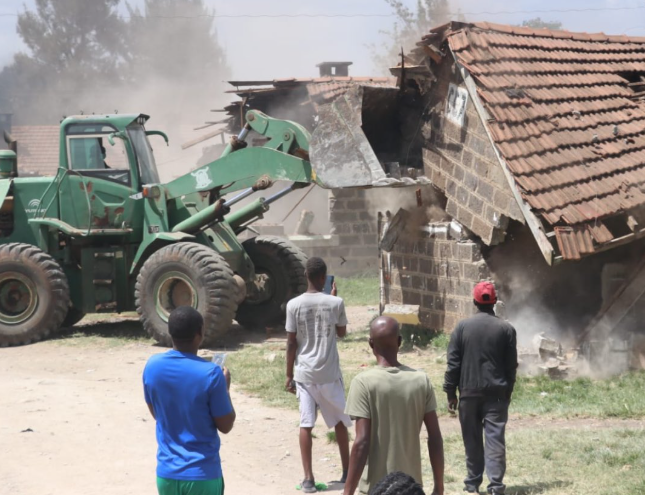The Environment and Land Court has issued temporary orders stopping the demolition of hundreds of homes in Makongeni Estate, delivering urgent relief to residents facing eviction to make way for a government-backed affordable housing project.
Justice Charles Mbogo on Monday certified the case as urgent and granted conservatory orders that immediately suspend all demolitions, evictions and displacement in the estate. The ruling also mandates the restoration of water and electricity supplies, which residents say were deliberately cut during the operation.
The orders follow a petition by the Makongeni Residents Association and five individuals who argued that the exercise, led by Kenya Railways Staff Retirement Benefits Scheme with support from the State Department for Housing and the Affordable Housing Board, was unlawful and violated constitutional protections.
“Pending the hearing and determination of the application, no demolitions or removal of property shall continue,” the judge ruled, setting the matter for inter-partes hearing alongside an earlier application filed on 19 November.
The decision came hours after bulldozers moved into the estate on Monday morning and families frantically salvaged belongings. Many loaded furniture onto pick-ups, handcarts and lorries under a 2 December vacation deadline. Some residents have lived in the railway-built houses for over sixty years.
The government insists the redevelopment will replace ageing units with modern high-rise blocks and says most tenants have received Sh150,000 disturbance allowances, with priority promised in future allocations. Residents counter that the compensation is inadequate and the process has been heavy-handed.
The Makongeni standoff has become the latest flashpoint in President William Ruto’s ambitious affordable housing programme, which relies heavily on redeveloping public land. Similar confrontations in Mukuru kwa Njenga and other informal settlements have already triggered legal challenges and accusations of forced evictions.
With the court now involved, the project faces further delays as judges increasingly scrutinise the balance between state-driven urban renewal and the rights of long-term occupants.
(328 words)



















